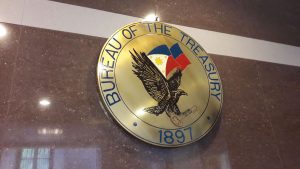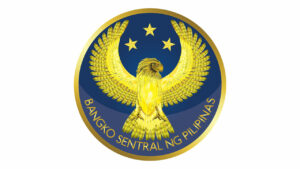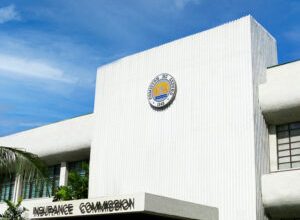Investor sentiment likely to improve as Philippines is removed from ‘gray list’

By Luisa Maria Jacinta C. Jocson, Reporter
THE PHILIPPINES’ exit from the Financial Action Task Force’s (FATF) “gray list” is seen to improve investor sentiment, but analysts noted that continued reforms are necessary to sustain progress.
The FATF on Friday removed the Philippines from its list of jurisdictions under increased monitoring for “dirty money” following a “successful” on-site visit.
BSP Governor Eli M. Remolona, Jr. said in a text message that the Philippines’ removal from the FATF’s gray list will “help our overseas Filipino workers (OFWs) and foster more investment in our economy.”
“It also complements our ongoing efforts to make the financial system a stronger driver of sustainable growth,” he added.
Mr. Remolona attended the FATF Plenary and Working Group Meetings that took place in Paris, France from Feb. 17 to Feb. 21.
“Indeed, the Philippines came out of our gray list. They showed our members that they have completed in full the action plan,” FATF President Elisa de Anda Madrazo said at a press conference late on Friday.
The Philippines was on the FATF’s gray list for over three years or since June 2021.
The dirty money watchdog noted the Philippines’ “positive progress in addressing the strategic anti-money laundering and countering the financing of terrorism and proliferation financing (AML/CFT/CPF) deficiencies previously identified during their mutual evaluations.”
“The Philippines has completed their Action Plan to resolve the identified strategic deficiencies within agreed timeframes and will no longer be subject to the FATF’s increased monitoring process,” it said.
Finance Secretary Ralph G. Recto said in a statement that the removal of the Philippines from the gray list is a “seal of good housekeeping that strengthens public confidence in our financial system.”
“By upholding the highest standards of financial governance, we will attract more foreign direct investments and expand more trade partnerships that will help accelerate economic growth,” he said.
This would also support the government’s push to achieve an A-credit rating, Mr. Recto added.
The Anti-Money Laundering Council (AMLC) said the exit from the gray list will “facilitate faster and lower-cost cross-border transactions, reduce compliance barriers, and enhance financial transparency.”
Being part of the gray list for the past years has been a “burdensome process for banks and other financial institutions,” AMLC said.
“This process discourages correspondent banking relationships and international financial flows into the country. The exit will reduce international fund transfer requirements, benefiting Filipino individuals and businesses.”
The AMLC also said that the gray list status had hindered other countries from doing business with the Philippines.
“Moreover, even prior to the gray-listing, some foreign regulators were already imposing stringent requirements or fines on financial institutions dealing with entities in the Philippines and other countries deemed to have weak anti-dirty money regimes.”
“This prompted some banks to just avoid doing business with entities in those countries rather than managing possible money laundering or terrorist financing risks. The FATF decision may prompt foreign banks to review and resume their business relationship and transactions with Philippine financial entities.”
President Ferdinand R. Marcos, Jr. last year directed all concerned agencies to work on efforts to exit the list by October.
In July, Malacañang issued an executive order mandating all government offices to adopt the National Anti-Money Laundering, Counter-Terrorism Financing, and Counter-Proliferation Financing Strategy 2023-2027.
“With our exit from the FATF gray list, we are optimistic that the international community will see the Philippines as an even more attractive destination for business and investment,” Securities and Exchange Commission (SEC) Chairperson Emilio B. Aquino said.
Chester B. Cabalza, founding president of Manila-based International Development and Security Cooperation, said that this is a “celebratory moment” for the country.
“As an aspiring upper middle-income country, such transformation will give it more credibility as an investment destination in the region without fear that our financial buoyancy comes from dirty money,” he said.
Rizal Commercial Banking Corp. Chief Economist Michael L. Ricafort said this would increase investor confidence in the Philippines.
“The Philippines would save more processing time and also save on transaction costs, a more desirable scenario if transactions of the country with the rest of the world move with greater ease,” he added.
FATF’s Ms. Madrazo had also noted the Philippines’ efforts “in combating the risk of dirty money running through the casinos.”
The Philippine Amusement and Gaming Corp. (PAGCOR) said it will continue to strengthen regulations and strictly monitor the local gaming industry.
“We also commit to sustain the fight against money laundering and terrorist financing in the entire Philippine gaming industry, including our online gaming operators, land-based casinos and junket operators,” PAGCOR Chairman and Chief Executive Officer Alejandro H. Tengco said.
MOVING FORWARDHowever, the FATF said it will be crucial for the Philippines to sustain the measures on strengthening AML/CFT regimes.
“The FATF encourages the Philippines to continue its work in ensuring that its CFT measures are appropriately applied, particularly the identification and prosecution of TF cases, and are neither discouraging nor disrupting legitimate nonprofit organization activity,” it said.
Ms. Madrazo also said the Philippines will face a new assessment in 2027.
“That will be an opportunity for the FATF to verify that the measures are sustained and still in place,” she added.
For its part, the AMLC said that it is committed to “ensuring long-term compliance with international standards.”
Bienvenido S. Oplas, Jr., president of a research consultancy and of the Minimal Government Thinkers think tank, said the Philippines should continue to clamp down on illegal trade, which is a channel for dirty money.
“Illicit trade in tobacco, oil, jewelries, etc., this is a big source of money laundering. The government should crack them down,” he said.
Leonardo A. Lanzona, an economics professor at the Ateneo de Manila University, said the government must accompany reforms with other measures to better attract investments.
“While exiting the FATF gray list removes a major barrier to investments, the Philippines must compete on its strengths, such as its young workforce, service-driven economy, and tourism potential,” he said.
“Regional competitors are also aggressively courting investors, so policy consistency, infrastructure upgrades, and targeted investment promotions will be critical,” he added.
SAFEGUARDS SOUGHTMeanwhile, Jose Enrique “Sonny” A. Africa, executive director at think tank IBON Foundation, said there needs to be “stronger safeguards to mitigate the heightened risk of continued erosion of civic and democratic space.”
“The FATF itself nominally calls for a targeted risk-based approach — the government should be challenged to uphold the spirit of this with transparent data-driven risk assessments and with sanctions governed by due process with clear judicial oversight,” Mr. Africa said.
The FATF in its statement said that the Philippines’ continued measures should not impede on legitimate nonprofit activities.
“Executive misapplication has already been checked with so-called terrorist financing cases motu proprio dismissed for insufficiency of evidence and no probable cause at least thrice by the courts,” Mr. Africa said.
He said that the government should “stop using AML/CFT as political tools to suppress activism and use them against actual financial crimes.”
“It should stop freezing assets of NGOs and individual activists with trumped-up terrorism financing accusations and redirect enforcement towards systemic financial crimes including those committed by politically connected individuals.”
In 2002, the FATF blacklisted the Philippines for having no legal anti-money laundering framework. It was removed from the blacklist a year later after the passage of the Anti-Money Laundering Act.




